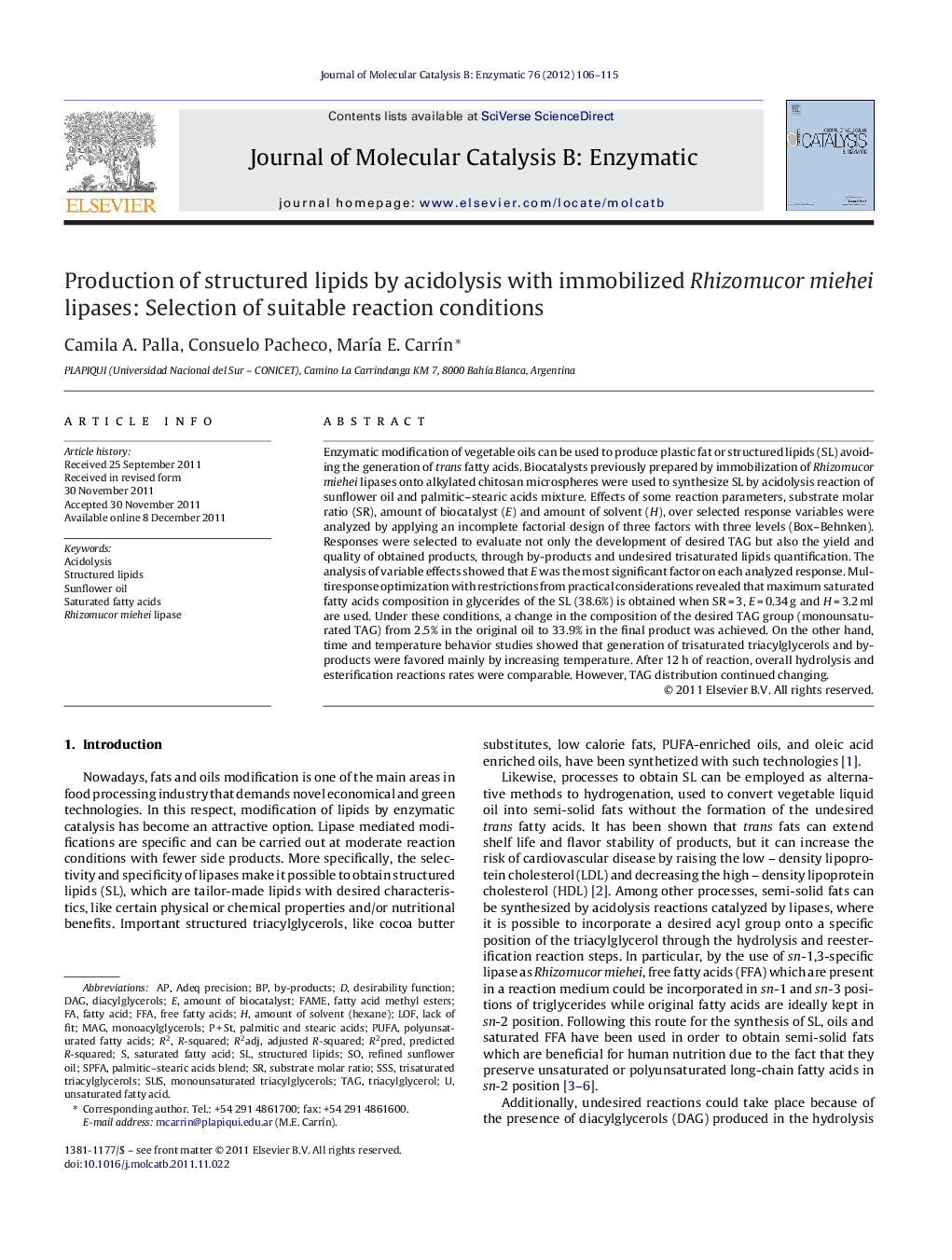| Article ID | Journal | Published Year | Pages | File Type |
|---|---|---|---|---|
| 70050 | Journal of Molecular Catalysis B: Enzymatic | 2012 | 10 Pages |
Enzymatic modification of vegetable oils can be used to produce plastic fat or structured lipids (SL) avoiding the generation of trans fatty acids. Biocatalysts previously prepared by immobilization of Rhizomucor miehei lipases onto alkylated chitosan microspheres were used to synthesize SL by acidolysis reaction of sunflower oil and palmitic–stearic acids mixture. Effects of some reaction parameters, substrate molar ratio (SR), amount of biocatalyst (E) and amount of solvent (H), over selected response variables were analyzed by applying an incomplete factorial design of three factors with three levels (Box–Behnken). Responses were selected to evaluate not only the development of desired TAG but also the yield and quality of obtained products, through by-products and undesired trisaturated lipids quantification. The analysis of variable effects showed that E was the most significant factor on each analyzed response. Multiresponse optimization with restrictions from practical considerations revealed that maximum saturated fatty acids composition in glycerides of the SL (38.6%) is obtained when SR = 3, E = 0.34 g and H = 3.2 ml are used. Under these conditions, a change in the composition of the desired TAG group (monounsaturated TAG) from 2.5% in the original oil to 33.9% in the final product was achieved. On the other hand, time and temperature behavior studies showed that generation of trisaturated triacylglycerols and by-products were favored mainly by increasing temperature. After 12 h of reaction, overall hydrolysis and esterification reactions rates were comparable. However, TAG distribution continued changing.
Graphical abstractFigure optionsDownload full-size imageDownload as PowerPoint slideHighlights► Alkylated chitosan microspheres were used to immobilize lipases. ► Structured lipids were synthesize using these new biocatalysts. ► High levels of monounsaturated TAG were achieved. ► Trisaturated TAG and by-products generations were favored by increasing temperature.
